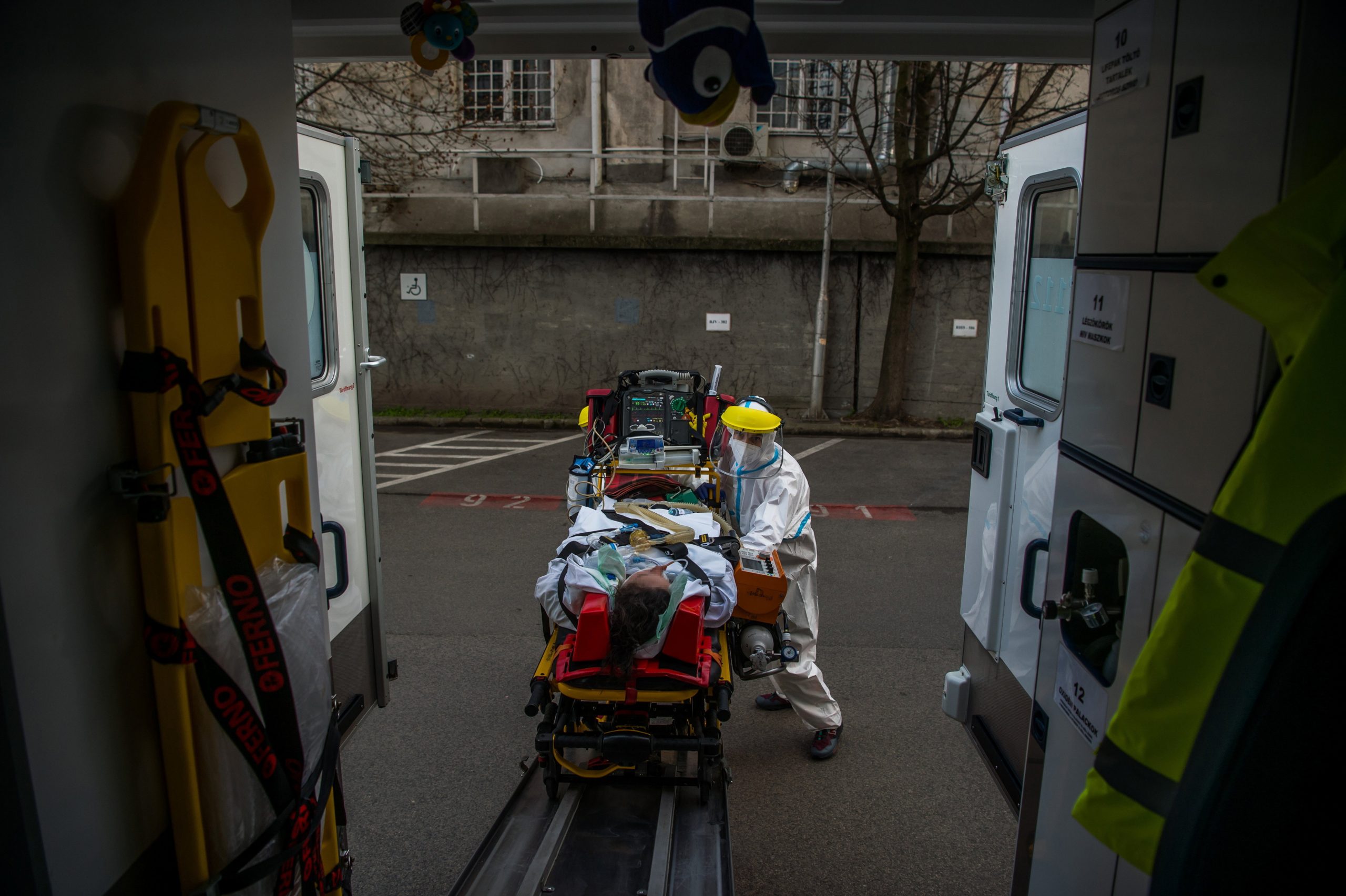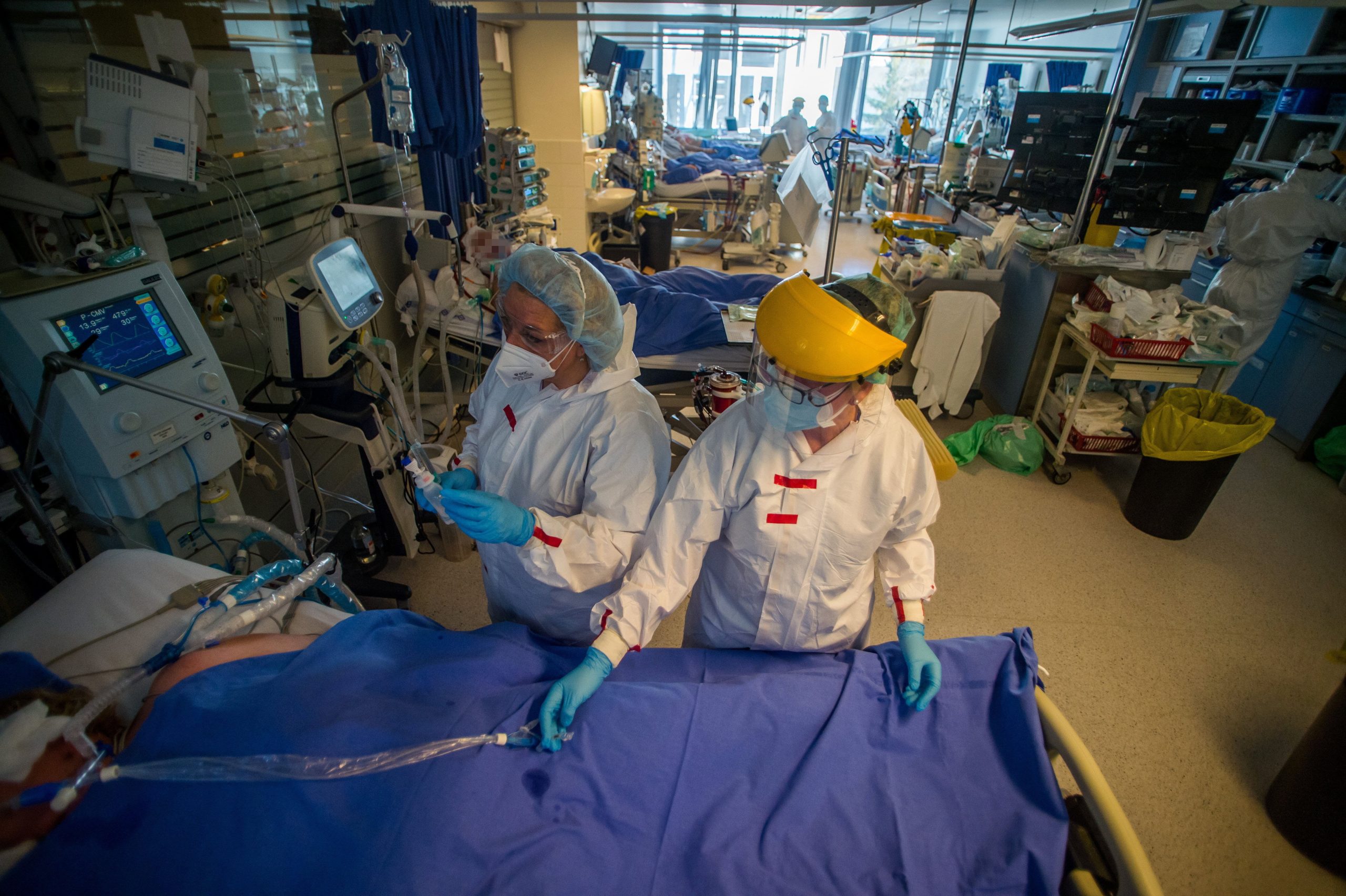
The number of coronavirus related deaths in Hungary has been tragically high by regional comparison. Furthermore, the country has had the highest daily deaths per capita in the world several times during the pandemic. For this, many have blamed the generally poor health of Hungarians, but the exact reasons are still uknown. A Hungarian GP practicing in Scotland told news site, Index, that the problem is likely to do with Hungary’s healthcare planning.
Zsolt Török used to work as a GP in Hungary, but moved to Scotland a few years ago and continued his career abroad. Despite this, he continues to occasionally work in Hungary and was also involved in the vaccination campaign of the country. The Hungarian doctor spoke to news site Index about the differences he has seen in the two countries’ protective measures and the reasons why so many people have died from the virus in Hungary.
The biggest difference, according to Török, is that the United Kingdom realized at the start of the pandemic that covid patients could not be transferred solely to already overburdened GP practices and hospitals.
“Hungarian healthcare is characterized by a lack of clear patient pathways, and it often takes weeks to get the right treatment. This is even more so since Covid-19,” Török told Index.
Related article
Hungary Has the Most Coronavirus Deaths Relative to Its Population
In terms of countries that have a population greater than 100 thousand people, Hungary has the most coronavirus related deaths relative to its population. Since the beginning of the pandemic, more than 26 thousand Hungarians have passed away, with around 1,700 people dying every week for the past four weeks. Only Gibraltar stands ahead of Hungary […]Continue reading
The GP says if a Hungarian patient becomes infected, they have only two options: they can either cure themselves at home and, in the best case, at least keep in touch with their GP by phone, or if their condition becomes serious, they can be admitted to hospital.
“There is a terrible gap in the system of a facility for moderate cases where we can get effective care for milder symptoms, even in the early stages of the disease,” says the GP, stressing that this is a step Scotland did not miss out on.
There, around 30 to 35 units – called Covid Hubs – have been set up across the country where people with coronavirus can get an appointment within hours.
Patients can thereby receive supportive treatments at a very early stage to prevent them from being put on a ventilator and in intensive care. Török believes that this type of care planning could have kept the number of people hospitalized and the number of deaths in Hungary at a lower level.
“If we look at the mortality figures in Hungary, we cannot be content with the explanation that we are inherently in poor health. I can assure everyone that the average health condition of the general public in the UK is not that great either,” said Zsolt Török.
Beyond this, the GP pointed to several other important differences as well, with the vaccination campaign among them.
Although Hungary was initially at the top of the vaccination rate rankings, it slowly slipped back into the mid-pack. In contrast, following a slower pace, the number of people over 12 who have received their first vaccine dose exceeds 90 percent in Scotland.
Related article
Hospital Director Confirms Harrowing Reality of Hungary's Hospitals
"Most people still do not know what is going on," the hospital director said, urging people to get vaccinated ASAP.Continue reading
“In Hungary, Török says vaccination has also become a political issue, with many people making health decisions based on their political affiliation. While representatives from each side were sending messages back and forth to each other in public, a significant portion of the people became hesitant. In Scotland, on the other hand, there is already greater trust in science and the health care system, but the fact that pseudo-news has not spread as much as it has here has also helped,” he said.
Testing practices also differ significantly between the two countries. While in Hungary testing has never been the cornerstone of protection against the virus, in Scotland screening is much more emphasized.
Teachers, and social and healthcare workers are tested daily, but the Scottish government has made it possible for any company to screen its employees two times a week, with a sufficient number of state-provided tests, Török noted.
Featured photo by Zoltán Balogh/MTI


